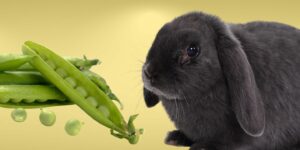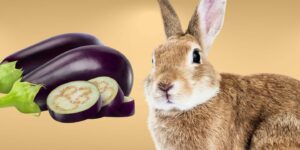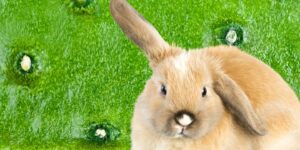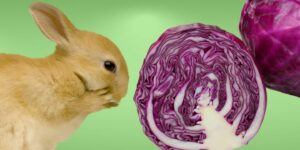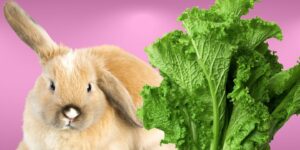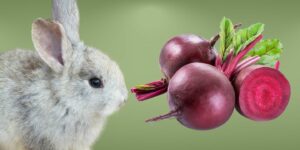Can rabbits eat green beans? The short answer is yes, rabbits can eat green beans because rabbits are herbivores. Green beans, also known as string beans or snap beans, are a healthy and nutritious addition to a rabbit's diet. However, it's important to feed green beans to rabbits in moderation and as part of a balanced diet.
Introduction to Rabbit Nutrition
Before diving into the specifics of green beans, it's important to understand the basic nutritional needs of rabbits. As herbivores, rabbits primarily consume a diet of hay, pellets, vegetables, and occasional treats.
Hay: The Foundation of a Rabbit's Diet
Hay is the most important component of a rabbit's diet, providing essential fiber for maintaining a healthy digestive system. The majority of a rabbit's diet should be made up of hay, specifically grass hay such as Timothy, Orchard, or Meadow hay.
Pellets: A Supplemental Source of Nutrients
Rabbit pellets provide additional vitamins, minerals, and protein that may not be found in hay alone. However, pellets should be fed in moderation, typically around 1/4 cup per 5 pounds of body weight per day.
Vegetables: Adding Variety and Nutrients
A variety of leafy greens and vegetables can be included in a rabbit's diet to provide additional vitamins and minerals. Green beans are just one example of the many vegetables that can be safely fed to rabbits.
Benefits of Green Beans for Rabbits
Green beans are a great source of vitamins and minerals for rabbits, including vitamins A, C, and K, as well as potassium, iron, and calcium. They are also a good source of fiber, which is important for maintaining a healthy digestive system in rabbits.
Feeding Green Beans to Rabbits
When introducing green beans to a rabbit's diet, it's important to do so gradually to avoid gastrointestinal upset. Start by offering a small amount of green beans, such as a few pieces, and observe the rabbit's reaction. If the rabbit seems to enjoy the green beans and experiences no digestive issues, the amount can be gradually increased.
Portion Size
It's important to feed green beans to rabbits in moderation. As with any new food, it's best to start with a small portion and gradually increase the amount if the rabbit seems to enjoy it and experiences no digestive issues. In general, green beans should make up only a small part of a rabbit's diet, and should not be fed in large quantities. A good rule of thumb is to offer no more than one or two tablespoons of green beans per two pounds of body weight per day.
Preparing Green Beans for Rabbits
When feeding green beans to rabbits, it's important to take certain precautions to ensure their safety and enjoyment.
Washing and Cutting
Always thoroughly wash green beans before feeding them to rabbits to remove any dirt, pesticides, or other contaminants. Additionally, cut off any tough ends and remove any strings before offering them to your rabbit.
Fresh vs. Frozen Green Beans
While fresh green beans are the ideal choice, frozen green beans can also be fed to rabbits as long as they are properly thawed first. Avoid feeding canned green beans, as they often contain added salt and preservatives that are not healthy for rabbits.
Potential Risks and Concerns
As with any new food, there are potential risks and concerns when feeding green beans to rabbits.
Gastrointestinal Upset
Overfeeding green beans, or any new food, can cause gastrointestinal upset in rabbits, leading to symptoms such as diarrhea, gas, or bloating. To minimize this risk, introduce green beans gradually and in small amounts.
Choking Hazard
Although unlikely, there is a small risk of choking if a rabbit attempts to swallow a large piece of green bean without properly chewing it first. To reduce this risk, cut green beans into smaller pieces before feeding them to your rabbit.
Alternatives to Green Beans
If your rabbit doesn't seem to enjoy green beans, or if you're looking to add more variety to their diet, consider offering other safe vegetables such as:
- Bell peppers
- Carrots
- Cucumbers
- Kale
- Lettuce (Romaine, Green leaf, or Red leaf)
- Spinach
- Zucchini
Always introduce new vegetables gradually and monitor your rabbit for any signs of digestive upset.
Conclusion
In conclusion, rabbits can eat green beans as part of a balanced diet. Green beans are a healthy and nutritious option for rabbits, providing vitamins and minerals that are essential for their overall health. However, it's important to feed green beans to rabbits in moderation and to introduce them gradually to avoid gastrointestinal upset. By following these guidelines, you can safely and enjoyably incorporate green beans into your rabbit's diet.



